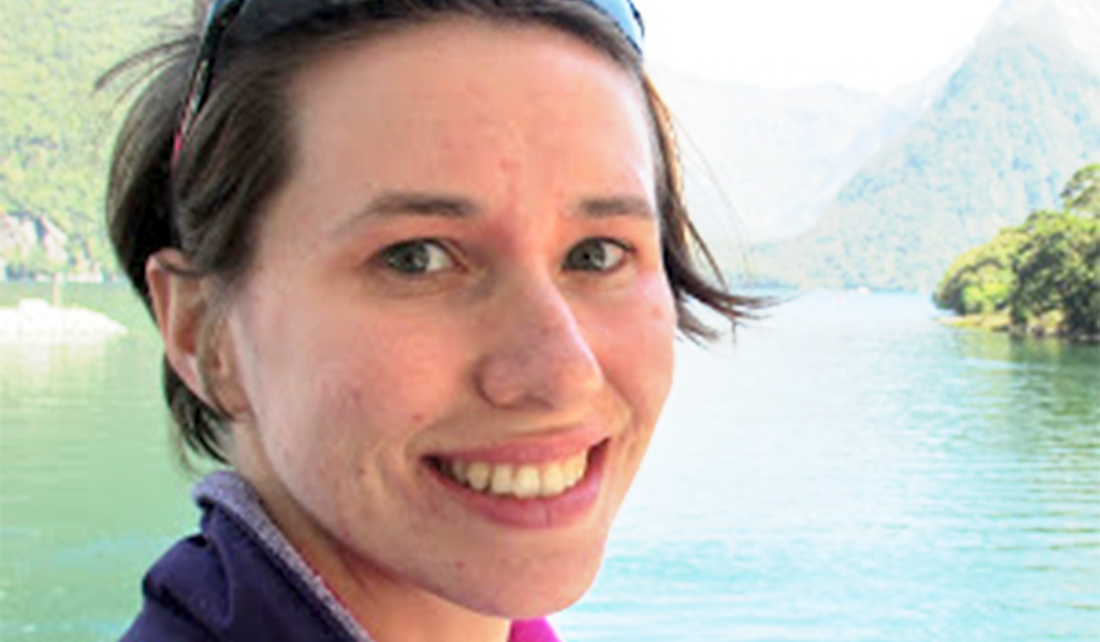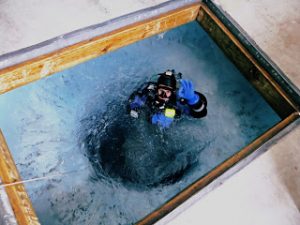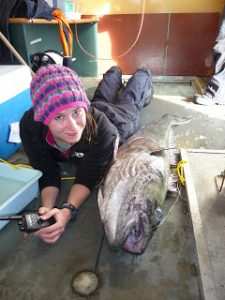
I have always been interested in fish biology, growing up and scuba diving in Massachusetts, but I became interested in fisheries policy through my graduate work at the University of Illinois at Urbana-Champaign.
My doctoral research focused on Antarctic fish physiology, specifically the blood antifreeze proteins that these fishes have in order to survive in the extreme cold temperatures of the Southern Ocean.
My dissertation research showed a link between environmental temperature and antifreeze protein activity and concentration in different, commonly caught fish species in the Antarctic. One of the largest Antarctic fish species which possesses antifreeze proteins is the Antarctic toothfish (also known as the Chilean seabass).
We caught just seven of these fish during my first field season, and I learned about the toothfish fishing industry and the international politics regarding Antarctic resource management which falls under the jurisdiction of the Commission for the Conservation of Antarctic Marine Living Resources (CCAMLR) . I wrote grants to study this little-understood fish while at the University of Illinois and tried to learn as much as I could about CCAMLR and the research that goes into making policy decisions.
. I wrote grants to study this little-understood fish while at the University of Illinois and tried to learn as much as I could about CCAMLR and the research that goes into making policy decisions.
I am very excited to be a 2016 Knauss Fellow in the National Marine Fisheries Service Office of International Affairs and Seafood Inspection. I was placed within this office after a grueling but rewarding week of presentations and interviews in Washington, DC. I traveled to DC with 53 other incredible finalists for placement with hosts in the federal government. We heard presentations from the 56 possible host offices on projects ranging from fisheries, satellites, climate change, habitat, and many more. Over the next two and a half days I interviewed with 15 different offices, the majority of which were within NOAA, and by Friday I selected placement in the Office of International Affairs and Seafood Inspection.
 Though I do not know specifically what I will be working on, some of the projects could include the US-Mexico and US-Canada bilateral trade agreements, work with the International Convention for the Conservation of Atlantic Tuna, work with CCAMLR, and fishery bycatch policy. I will have a year of intensive international fisheries policy training where I am sure to learn a lot.
Though I do not know specifically what I will be working on, some of the projects could include the US-Mexico and US-Canada bilateral trade agreements, work with the International Convention for the Conservation of Atlantic Tuna, work with CCAMLR, and fishery bycatch policy. I will have a year of intensive international fisheries policy training where I am sure to learn a lot.
Lauren Fields, University of Illinois’ 2016 Knauss Marine Policy Fellow, received her PhD from the Department of Animal Biology at the University of Illinois in May. She started on February 1, 2016 with NOAA in Maryland.
For more information about the Knauss fellowships and other opportunities, please visit the Fellowship and Scholarship page.

